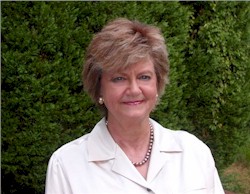|
|
|||||
|
Be Neutral |
|||||
|
Case Watch: For Mediators
The following case analysis is part of a regular series
we publish to help you broaden your knowledge of rulings of Georgia’s
appellate courts that may affect your practice. Remember: mediators
should not give legal advice or opinions. CaseWatch for Mediators: Just the Facts We all know that in law, the individual facts determine whether the rule or the exception applies. While parties may be adamant that property is separate because they inherited it, the court may not agree once the facts are presented. If there exists any evidence to support a court’s ruling, a party may not be awarded what was initially separate inherited property. This creates an opening for resolving such disputes in mediation. Shaw examines when separate inherited property, which is usually not subject to division, becomes marital property and is divided. The Shaws were married for 40 years. At their two-day divorce bench trial, they submitted the following three assets for determination of distribution, if any: 1. Unimproved real property in Marion County, Florida, received from a trust created by husband’s mother; 2. Two Morgan Stanley accounts established by husband with inherited funds; and 3. Two deeded interests of 6.67% in an apartment complex currently involved in other litigation. The trial court ruled that the Florida property and the two Morgan Stanley accounts were marital property, and they were equally divided between the parties. The court made no disposition of the interests in the apartment complex, leaving each party with a 6.67% interest. On appeal, the husband alleged that the trial court erred in finding that the Florida property was marital. In support of his claim that it was separate property and not subject to division, he showed that he had inherited it from his mother, that his wife made no contribution to the property’s value, and that the property was not commingled with other marital assets. The husband’s fatal error, however, was in deeding the property into his name and his wife’s name as tenants in common, giving each party an undivided one-half interest in the property. The Supreme Court found that this transfer was sufficient evidence that the Florida property had been transformed into a marital asset. The Court clarified: “While property inherited by one spouse during the course of the marriage begins as separate property, that property may be converted into a marital asset by the actions of the recipient spouse, such as the recipient spouse transferring full, partial or joint ownership in the property to his spouse.” Husband also alleged that the two Morgan Stanley accounts were his separate property because his wife never contributed to the value of the account, and the accounts were not commingled. However, the accounts were opened in the names of both parties to receive the inherited assets. The Court found that fact decisive: “The accounts were transformed into marital property when Husband gave Wife an ownership interest in the property. Wife’s name on the accounts certainly qualified as any evidence supporting the trial court’s finding of the accounts as marital property.” The court reminded us that “the standard by which findings of fact are reviewed is the ‘any evidence’ rule, under which a finding by the trial court supported by any evidence must be upheld.” Mediators will note that with both the Florida property and the Morgan Stanley accounts, the husband himself took the actions that resulted in creating joint ownership from sole ownership. He could have just as easily established separate ownership. Husband’s third allegation of error was he should have been awarded all of the couple’s interest in the apartment complex. The facts indicated that the husband, wife and husband’s brother purchased a 20% interest in the property. It was then divided into three equal shares of 6.67% each. The property was the subject of a separate legal dispute where the wife was added as a third-party defendant and represented by her own attorney. The trial court elected to make no distribution of interest and left the parties status quo. We can only surmise that the final disposition was left to another court. The Supreme Court found no abuse of discretion in the trial court’s ruling. In Shaw, the titles and names on the accounts were sufficient to transform separate, inherited property into marital property. In mediation, mediators should question the parties and help them consider the possibility that their convictions that property is separate inherited property may not be shared by the court. The broad discretion of the trial court, coupled with the “any evidence” rule, makes the end result more difficult to predict in court, and it is equally as difficult for the losing party to prevail on appeal. The more self-determined the parties are in mediation, the more control they have over the negotiations, and the more predictable the final outcome.
|
|||||

